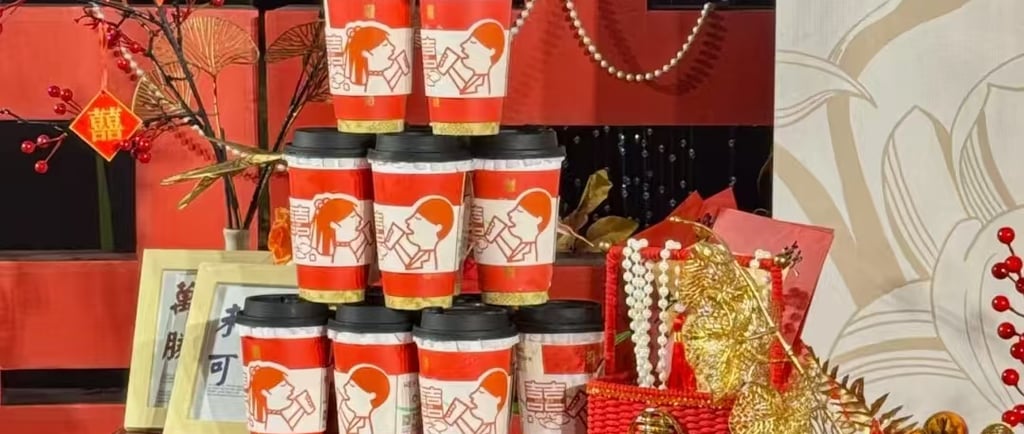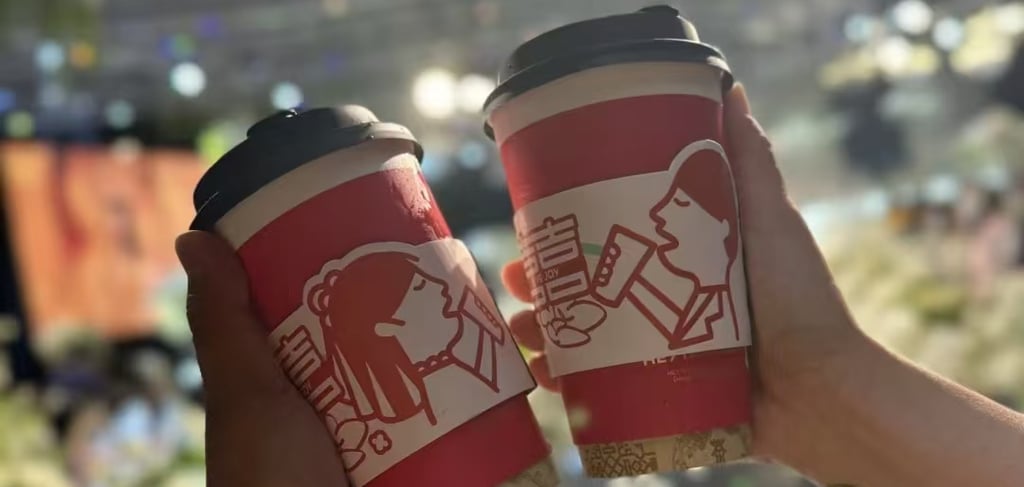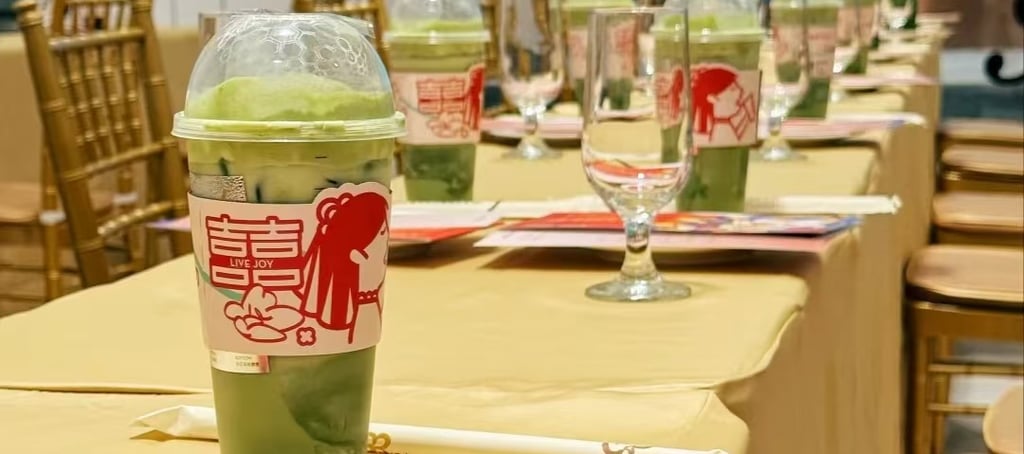New Tea Drinks Are Changing the Wedding Scene in China
Explore how new tea drinks like bubble tea are revolutionizing wedding trends in China. Learn why young couples are opting for personalized, health-conscious, and Instagram-worthy drinks over traditional wedding beverages. A fresh, fun twist!
CHINESE TEA CULTURETEA LIFE


Why Are New Tea Drinks Taking Over Weddings in China?
It might sound surprising, but more and more Chinese couples are choosing to serve new tea drinks instead of wine or champagne at their weddings. It’s not just about quenching thirst—it’s a cultural shift that reflects broader changes in what modern Chinese couples want for their big day.
So, why is bubble tea becoming the drink of choice at weddings?
Personalisation: Brands like HEYTEA offer custom packaging and special drinks tailored to weddings, fitting perfectly with the theme and aesthetics of any ceremony.
Health-conscious choices: With young people becoming more health-conscious, bubble tea is viewed as a lighter, more refreshing alternative to heavy alcohol options.
Social media appeal: Weddings today are as much about the photos as they are about the ceremony. Colorful, custom bubble tea drinks look great on Instagram, making them perfect for young couples who want to share their day online.
How Big Is This Trend?
It’s not just a few outliers—this trend is taking over. In Nanning, a young couple recently ordered 320 cups of HEYTEA to replace traditional wedding drinks. And it wasn’t a fluke. There are now countless videos on Douyin (the Chinese version of TikTok) of couples toasting with bubble tea instead of wine. One video about using bubble tea to toast guests even got over 43,000 likes and 270,000 shares.
Social media has played a huge role in spreading this trend. People love seeing unique wedding ideas, and replacing alcohol with bubble tea is a standout choice.


What’s Driving This Shift?
The New Consumer Habits of Young Couples: Younger generations in China, particularly those in their 20s and 30s, are all about expressing individuality. They want their weddings to reflect who they are—not just follow old traditions. New tea drinks like bubble tea offer a personalized experience, making them a perfect fit for modern weddings.
Creating Memorable Experiences: Weddings today are not just about the ceremony—they’re about creating an experience. Couples want their guests to remember the day for more than just the food or the ceremony itself. Serving bubble tea adds an unexpected, fun twist that people can talk about.
Wider Market Appeal: The wedding industry in China is massive, and it’s growing fast. The shift to new tea drinks is opening up a new market for tea brands. But this isn’t just about selling drinks—it’s about tapping into a cultural moment and becoming a part of something bigger.
Will Bubble Tea Ever Fully Replace Traditional Wedding Drinks?
Let’s be clear: bubble tea isn’t going to completely replace wine or champagne at weddings—not in the near future, anyway. The traditional drinks will still have their place in weddings for those who prefer them. But there’s no denying that bubble tea is becoming an exciting new addition to wedding menus, and it’s here to stay in some form.
In fact, many couples are not opting to replace alcohol entirely—they’re using bubble tea as a fun alternative option, adding it alongside more traditional choices.
New tea brands like HeyTea are already providing bulk wedding packages, making it easier for couples to serve tea at weddings, especially larger ones.


Can This Trend Be Successful Outside of China?
While the trend is currently massive in China, it’s not completely out of reach for Western weddings. Many global tea brands are now experimenting with offering unique tea experiences that could work for weddings in the UK or the US. Customizable bubble tea could be a refreshing addition for couples looking for something a bit different at their celebration.
Final Thoughts
The wedding scene in China is evolving, and new tea drinks are leading the charge. While it may not completely replace wine and champagne at weddings, it’s clear that bubble tea and its peers are making their mark. Whether or not it catches on globally, this trend is a testament to how modern couples are reshaping their big day to reflect who they truly are.
So, what do you think? Will you consider serving bubble tea at your wedding?
FAQs
1. Can I serve bubble tea at my wedding in the UK or US?
Yes! While the trend started in China, there’s no reason you can’t bring it to your wedding. Look for local tea shops offering custom bubble tea options for events, or consider contacting international brands that could cater to your wedding.
2. What are the most popular brands in China for weddings?
In China, HEYTEA and CHAGEE are two of the most well-known brands offering custom bubble tea drinks for weddings. They’ve tapped into the market by offering unique wedding packages and personalized options.
3. Is it cheaper to serve bubble tea instead of alcohol at weddings?
It depends on the size of the wedding, but in many cases, serving bubble tea can be more affordable than providing alcohol for all your guests. With packages designed for bulk orders, bubble tea can offer a cost-effective alternative to traditional wedding drinks.
4. What are the challenges of serving bubble tea at weddings?
The biggest challenge is scaling up production for large weddings without compromising quality. When you’re serving hundreds of guests, making sure the bubble tea stays fresh, flavorful, and consistent can be tricky. It’s important to work with vendors who can handle large quantities while maintaining the quality.
Ever thought about swapping traditional wedding drinks for something more modern and refreshing? Well, in China, new tea drinks (like bubble tea and fruit tea) are making waves at weddings. The latest trend? Couples replacing traditional alcoholic beverages with trendy new tea options like bubble tea. And honestly, it’s catching on fast.
But why is this happening? And is it something that could spread globally?
Let’s dive in.
